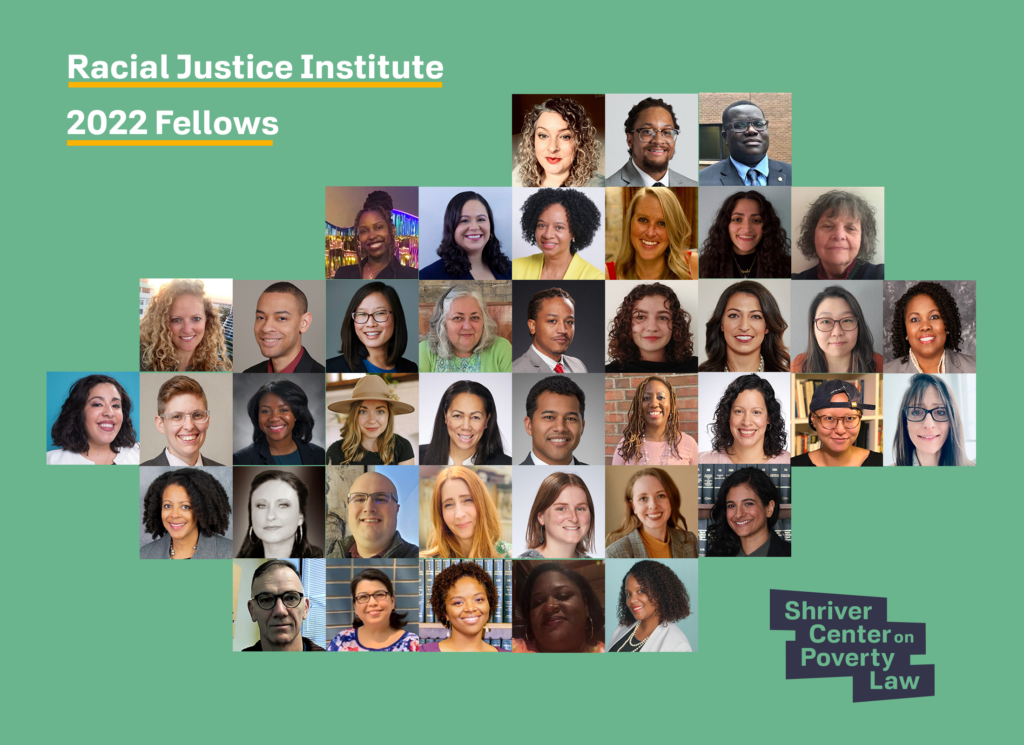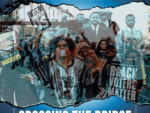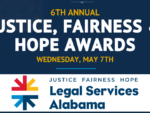Leaders to join network of advocates advancing race equity across the country
The Shriver Center on Poverty Law has announced that 43 Fellows, including three LSA staff, have been selected to take part in its 2022 Racial Justice Institute (RJI) – a national leadership program that brings together anti-poverty advocates from around the country to develop new tools to advance racial equity.
This year’s RJI Fellows include a diverse group of public interest lawyers, legal aid attorneys, social workers, executive leaders, communications and policy professionals, and paralegals. They come from 11 organizations advancing justice in eight states.
LSA fellows include:
Felecia Pettway – Director of Development
Nell Brimmer – Managing Attorney of Client Access
Nicholas McKinney – Montgomery John Lewis Legal Fellow
The Shriver Center’s Racial Justice Institute grounds advocates in a commitment to race equity as an integral and essential part of anti-poverty advocacy and prepares them to tackle these issues on behalf of the communities they serve. Following seven months of intensive training, Racial Justice Institute Fellows join a growing national network of more than 375 alumni advancing race equity issues across the country.
The 2022 Fellows come to the Racial Justice Institute with experience in a wide range of advocacy areas, including second chance opportunities, civil rights, consumer protection, economic advancement, LGBTQI rights, immigrants’ rights, affordable housing/homelessness, and anti-human trafficking. Under the intensive seven-month RJI program that begins in April, the 2022 Fellows will be exposed to a core set of racial equity concepts that they can apply to the advocacy in which they are currently engaging.
“The diversity of expertise and lived-experiences that this year’s Fellows bring to the program will enrich our discussions and model what race conscious leadership can be,” said Janerick Holmes, Associate Director of the Racial Justice Institute and Network. “Together, we have the potential to develop racially equitable solutions that we could not begin to imagine on our own.”
Entering its ninth year, the Shriver Center’s Racial Justice Institute has cultivated more than 375 advocates, representing 116 organizations in 35 states and the District of Columbia. Fellows emerge from the program ready to help shape policies that support a more racially just society and continue to work in concert as part of the Shriver Center’s Racial Justice Institute Network.






